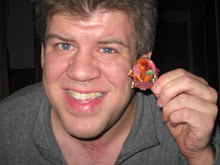For you see, I finally saw Heaven's Gate. And while I'm not going to be a complete wag and call it Hell's Gate, Purgatory's Passageway makes for an apt title.
I had just finished reading Final Cut, the book about the making of the infamous film and the demise of the studio that financed it: United Artists, the company founded by movie pioneers Douglas Fairbanks, Mary Pickford, D.W. Griffith and Charlie Chaplin. For decades, it was known as the most artist-friendly studio in town, having been the home of Woody Allen and Billy Wilder, but it also could ride herd on big commercial juggernauts like the James Bond movies. If Heaven's Gate were as excellent as the book, United Artists might still be a viable name today. And indeed, there might have been no book, and you might not be reading this right now.
But since you are reading this right now, it falls to me to tell you that the book is one of the best Hollywood insider stories ever written, if not the best. Written by the late Steven Bach, a UA production executive, the book lays out in painstaking and often self-deprecating detail how United Artists came to make Heaven's Gate - and how Heaven's Gate unmade United Artists.
I will not recount all those details here. You can find them out for yourself, via this excellent documentary based on the book, viewable on YouTube. It was the viewing of this documentary that piqued my interest in the book. Having finally read the book, I said to myself, "You know, I really ought to see the movie."
Part of my rationale was that I simply wanted to fill in the blanks left by the book. Part of it was simple curiosity. Could the movie possibly be as bad as legend said it was? New York Times critic Vincent Canby savaged the film, likening it to a "forced four-hour walking tour of one's own living room." Roger Ebert pretty much agreed, calling it "the most scandalous cinematic waste I have ever seen."
The good news is, no, Heaven's Gate is not that bad. The bad news is that Heaven's Gate is not that good, either.
Some revisionists, particularly critics based in Europe, have called the film a misbegotten masterpiece. It's not. While reports of the film's out-of-control budget may have colored the original reviews, the picture's ambition must not be mistaken for quality. Heaven's Gate has its virtues - but none of them can overcome the central problem: its formless blob of a screenplay.
Many have faulted Michael Cimino for his his wretched excess, for shooting take after take after take and for letting the picture run grossly overlong. And it is true that Heaven's Gate suffered from a lack of control. Final Cut reveals that Cimino directed like Stanley Kubrick, only with half the artistry and none of the discipline.
But Cimino was not an untalented man. He had an excellent eye, and a decent ear for performances. Ebert was far off the mark when he called it "incompetently photographed." The "incompetent" photographer was Vilmos Zsigmond, who had just shot The Deer Hunter for Cimino and won an Oscar for Steven Spielberg's Close Encounters. Maybe some of the visuals are overly diffuse, but on the whole, the picture looks great. Kris Kristofferson's performance is solid, and Isabelle Huppert is rather touching as the object of a love triangle between Kristofferson and Christopher Walken. David Mansfield's musical score is lovely. (Alas, the sound mix is not. Especially in large crowd scenes, the soundtrack is so muddled, I couldn't make out the dialogue.)
But as any director (or critic) worth their salt will tell you, music, visual skill and even performances can only carry you so far if you haven't got a story. And Cimino's screenplay never gave me a reason to care about all that fuss onscreen. The romance between Kristofferson and Huppert barely registers, and the romance between Walken and Hupert doesn't register at all. Maybe there's a nugget of interest here or there that might have warranted a 100-minute film. There certainly isn't enough to support more than 200 minutes.
I often disagreed with the legendary critic Pauline Kael, but I applauded her sentiments when she wrote: "While watching the three hour and 39-minute Heaven's Gate, I thought it was easy to see what to cut. But when I tried afterward to think of what to keep, my mind went blank."
Mine too.
GRADE: C-


No comments:
Post a Comment